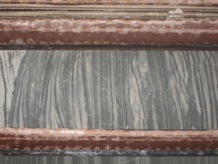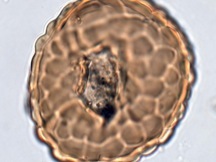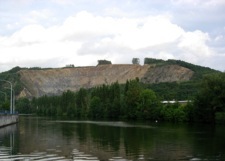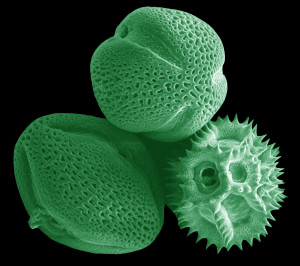Palynological research at LSU
My students and I conduct palynological research. Palynology is the study of an array of organic-walled microorganisms (e.g., spores, pollen, dinoflagellate cysts, fungal debris, acritarchs, chitinozoans, etc.). These entities, collectively called palynomorphs, were and are produced in prodigious quantities by a variety of terrestrial, aquatic, and marine organisms. Their resistant organic walls assure that they are preserved in sediments and rocks. In addition to traditional biological studies (evolution, extinction, diversity, morphological studies), palynomorphs are used in a variety of purposes, some of the most common ones being as paleoclimate index, as paleo-environmental markers, as a biostratigraphic tool for oil exploration, as a forensic tool to assist in criminal investigations, and in archaeological studies and investigations.
My research program primarily focuses on coastal to marine sections. We conduct stratigraphic and paleo-environmental studies in Antarctica, North Africa, Colombia, Gulf of Papua, and in the Gulf of Mexico region.




